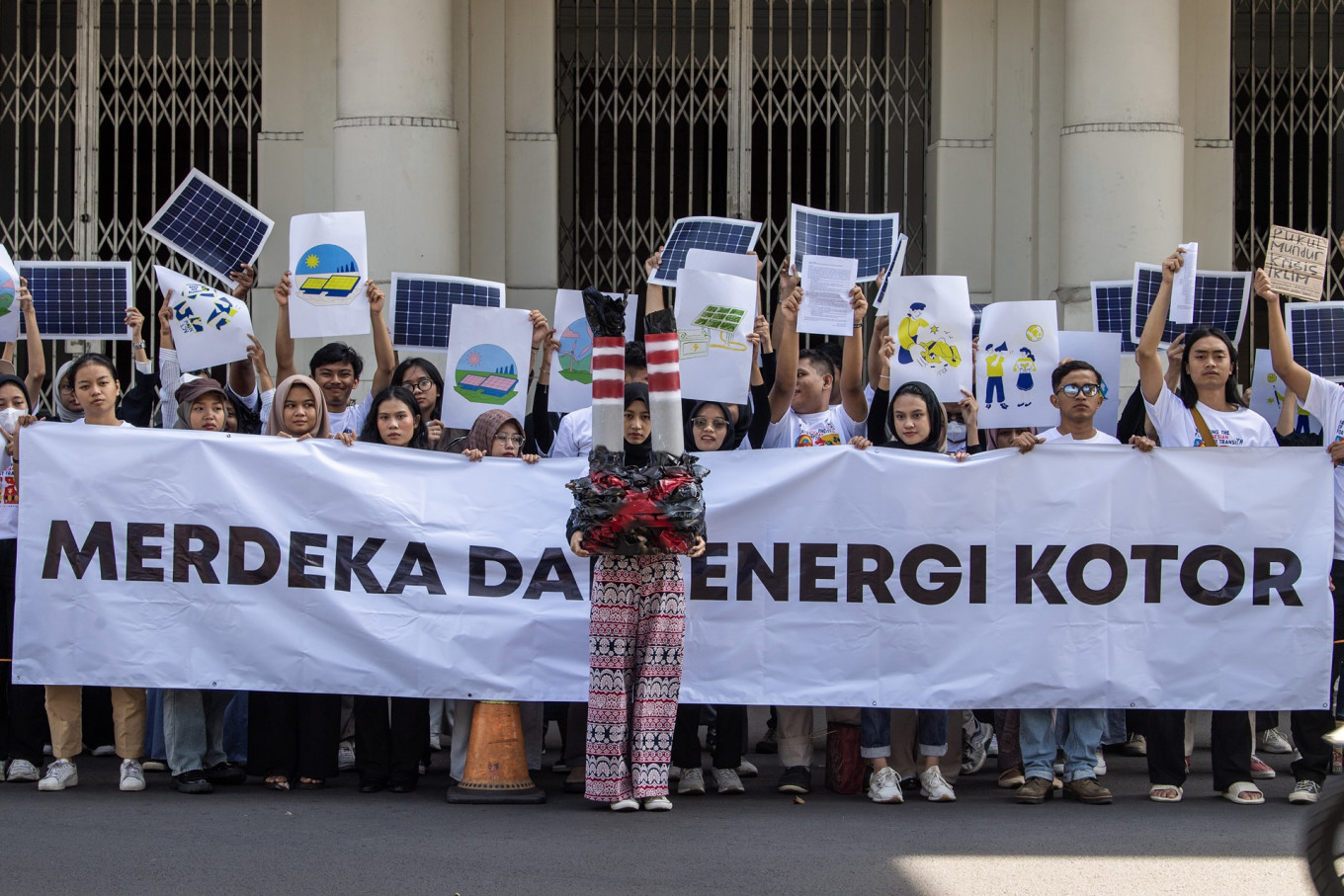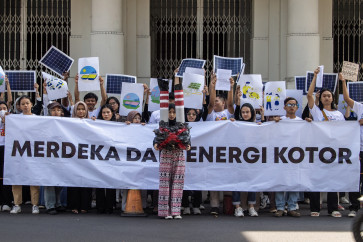Popular Reads
Top Results
Can't find what you're looking for?
View all search resultsPopular Reads
Top Results
Can't find what you're looking for?
View all search resultsGen Z, climate justice and '#IndonesiaGelap'
Many of the needs of young people are systematically ignored in the government’s climate policies and actions.
Change text size
Gift Premium Articles
to Anyone
T
he current protest movement #Indonesia Gelap (Dark Indonesia) is not just a phase. It is a loud and urgent alarm call, exposing the government’s failure to uphold climate justice. The Prabowo Subianto administration's failure to prioritize the people's interests risks creating various forms of injustice. This injustice is not only limited to social and economic aspects, such as budget-cutting policies but is also evident in its climate policies, which lack both ambition and justice.
For example, the government’s reckless move through the House of Representatives to revise the Minerals and Coal Law, which hands the fossil fuel industry a golden ticket to expand coal use, is proof that the political establishment is willing to mortgage our future for corporate gain.
If such anti-people policies are pushed through at the very start of the current administration, then we are not merely heading toward a dark future. We are already living in a dark Indonesia.
The government’s failure is further reflected in the findings of a Climate Rangers Jakarta survey. A report titled “Jakarta Gen Z’s Perception of Climate Justice” exposes a harsh reality: A significant portion of Generation Z continues to suffer from climate injustice.
The government’s failure to implement ambitious and just climate policies is an act of betrayal, one that is placing an entire generation’s future at risk. If we want to save both our planet and our youth, the government must act now to mainstream climate justice principles into its policies and actions.
Initiated by the youth-led community, the report highlights the inconvenient but undeniable truth: Climate policies and actions remain far from achieving climate justice.
The report surveyed 382 Gen Z respondents who have lived in Jakarta for at least five years. These respondents represent five cities, North, South, East, West and Central Jakarta. To ensure inclusivity, the report also gathered insights from marginalized groups, including youth from low-income families, the unemployed, informal workers, gender minorities, persons with disabilities, young fishers, young farmers and youth living in climate-vulnerable areas.


















